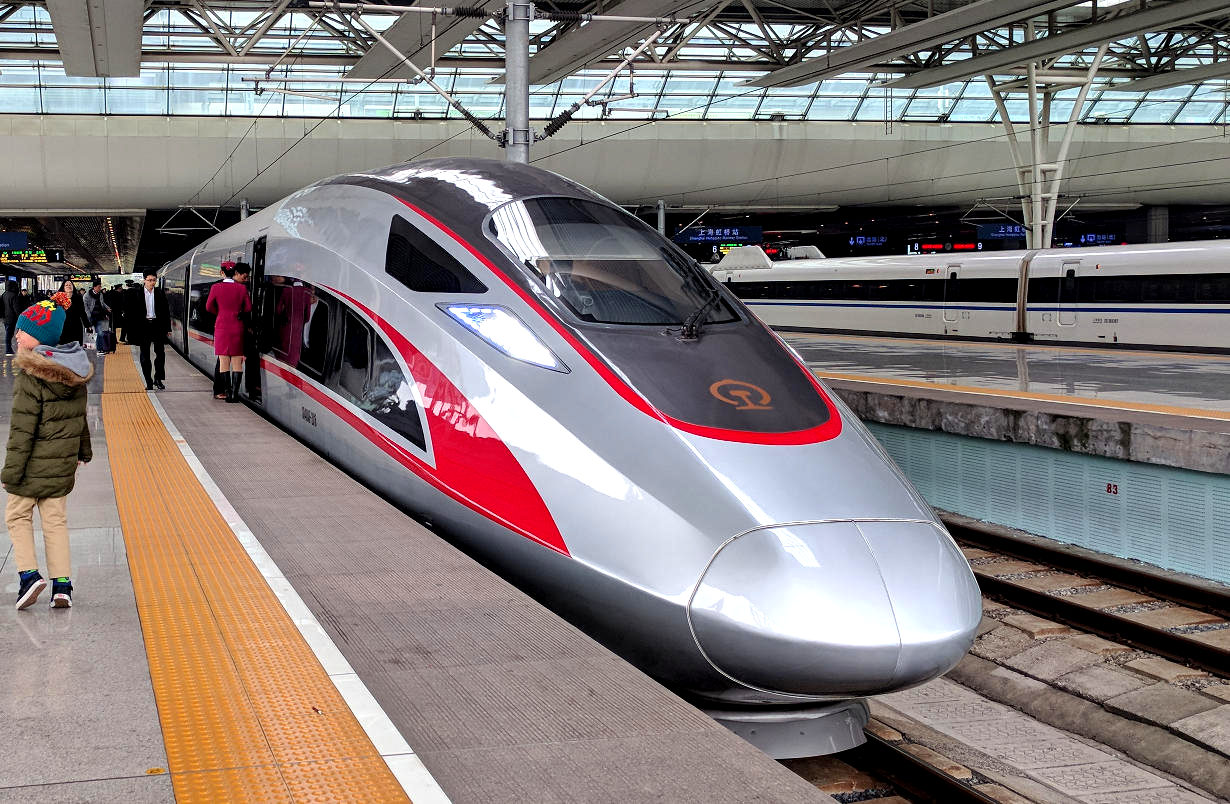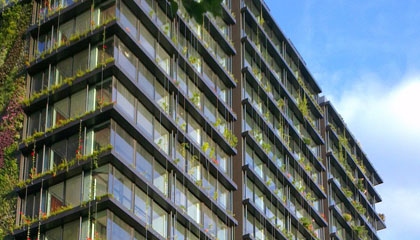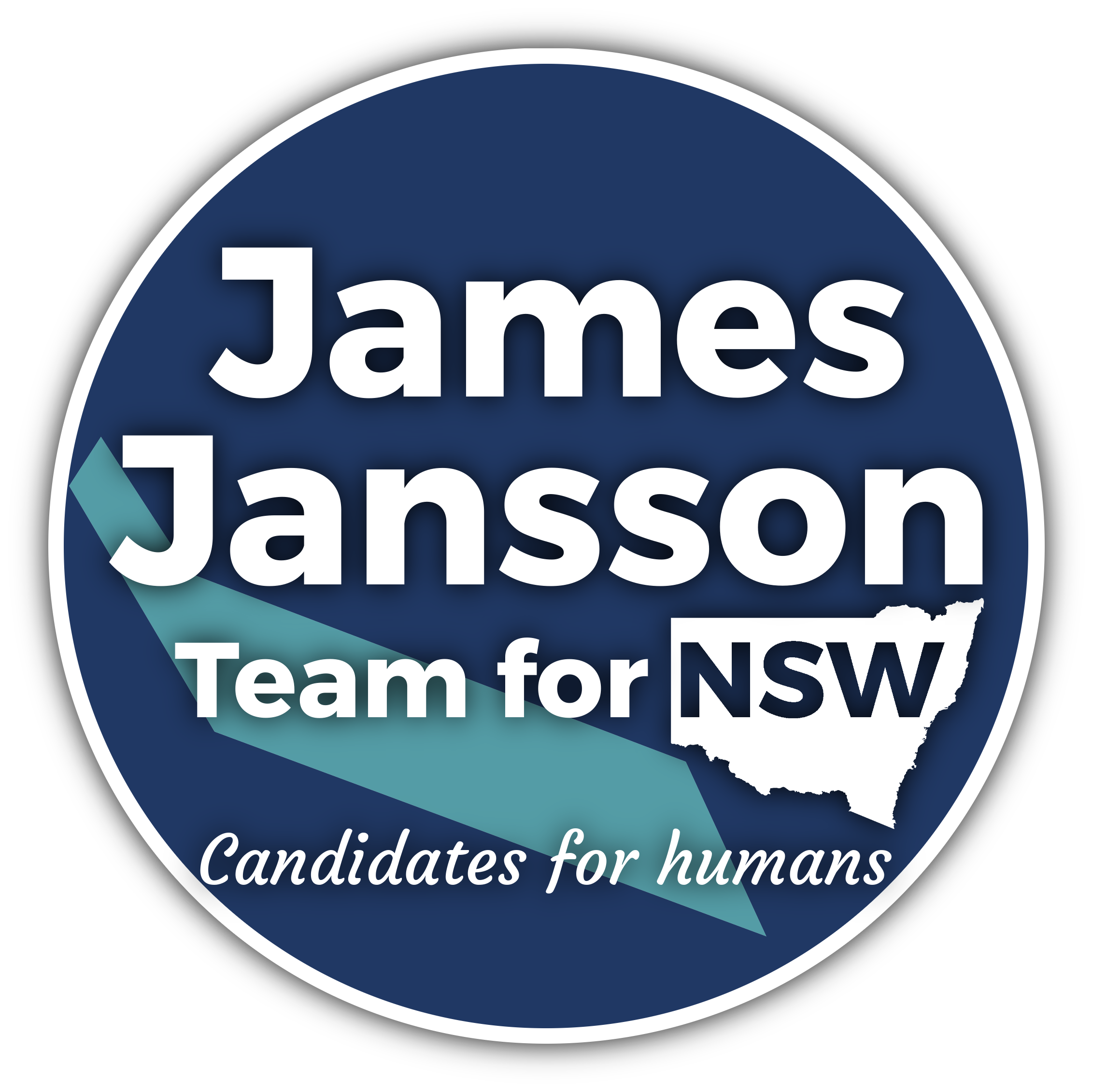Policies

Transport for our future
- A new high-speed, limited-stop line from Penrith to Central Sydney to ease congestion on the Western Line
- A metro to the Northern Beaches from the city, not a motorway which will clog the Harbour Bridge and tunnel
- A metro joining the Eastern Suburbs (including Maroubra and UNSW), central station and Sydney Airport
- Connect Carlingford line to Epping station and duplicating line
- Extend North West Metro to Riverstone to better connect North West Sydney
- Melbourne
- Albury/Wodonga
- Canberra
- Our new city, Turing
- Sydney
- Newcastle
- Gold Coast
- Brisbane
- Join existing bike infrastructure to improve bike routes
- Build additional separated bike paths to increase safety for bikes and convenience for motorists
We'll close the loop, joining the M4 and M5 to take trucks and cars off surface streets in the inner city and inner suburbs.
Leaving two recently upgraded motorways terminating short of the city and disconnected from other motorways will likely only create even bigger car parks on daily commutes.

Building for community needs
- Save the environment
- Decrease the cost of housing
- Increase time people can spend on leisure activities
- Contribute to the building of communities and local economies
- Make life easier for those who are aging and have disabilities
We'll put more homes around places where people want to live: near transport hubs and the services they need. This will:
Housing in our capital cities is expensive, but it doesn't need to be.
Australia has a long history of creating new towns. We're looking forward and building a new city between Sydney and Canberra, called Turing. Placed between Sydney and Canberra on a high-speed train line, Turing will be a place that is desirable for people who have family in either Canberra or Sydney, and may even have jobs in those cities.
Built as high density from the outset, it will have a subway built before buildings go up for driverless buses, cars and goods vehicles.
The city will be cheap to rent or buy in, while having high quality infrastructure due mostly to the density of the city. Density will be a requirement: buildings must create a minimum amount of liveable space per square meter of land.
Many schools are suffering with demountable buildings that have become permanent features, when they were only supposed to be temporary fixes.
We'll replace all demountables with permanent structures, and plan ahead to ensure that schools have sufficient capacity for predicted.

Educating the next generation
- Attach teacher career advancement to taking on greater responsibility and directing benefit to students most in need; and
- Provide financial incentives for teachers to move to and remain in hard-to-staff schools.
Review the system for assessing socioeconomic status to ensure the most disadvantaged schools receive their fair share of funding.
We strongly believe in increasing funding to schools to ensure that we can reverse what appears to be the slipping of Australian schools by global standards, and narrowing of the gap in academic achievement based on socioeconomic status (SES).
The way in which SES is assessed should be reviewed. The current system assumes that students who attend private schools come from households with an average income for the local area as calculated by the Australian Bureau of Statistics. This calculation is flawed; students who attend private schools are, on the whole, from households with above-average income.
The NSW Department of Education and Training currently provides incentives for early-career teachers to teach in low-performance schools in the outer suburbs and regional and rural areas. However, these incentives do not remain for experienced teachers, which sees expert teachers migrate towards the inner city.
Disadvantaged schools are therefore more likely to have less-experienced staff and higher staff turnover. This compounds the disadvantage, as schools and students need a stable staffing situation and highly qualified teachers to improve their outcomes.
While raising the pay for teachers of hard-to-staff schools will not solve all of the problems of these schools, it will reduce problems that these schools face in terms of finding and retaining good teachers.
Religious indoctrination has effectively been forced on the school children of NSW in public schools. We'll end the use of valuable school time for religious instruction.
We'll Implement ethics classes as part of the regular school curriculum and ensure any religious classes in public schools are to be moved outside of regular timetabling.
We'll create "extension school": additional optional schooling hours that can be used to give additional help to struggling students or to provide additional, more challenging material in the areas that students are interested in.
Students of all backgrounds, regardless of wealth, should be able to participate in additional educational activities outside of regular classroom time. We propose an ‘extension school’ which provides educational interest and tutoring classes outside of regular school hours.
Extension school can be used to provide either remedial lessons for students who are struggling, or more challenging material to those who are performing well in class. Extension school can be run in a similar fashion to out-of-school sports and arts activities. Making extension school optional gives students a sense of personal responsibility over their education.
Available evidence suggests no advantage to single-sex education. There is therefore no justification for separating children on the basis of sex or gender, when life is mixed-gender. Students are best prepared for daily interaction with the opposite sex earlier rather than upon entering university or employment.
Single-sex schools are a hangover from decades and centuries past, when boys and girls were very strongly steered towards different paths in life as adults.
Claims that adolescents should be shielded from the distraction of the opposite sex during adolescence as hormones take effect assumes heterosexuality. If the assertion is true, then single-sex schooling disadvantages same-sex attracted adolescents. Single-sex schools are also not necessarily inclusive of intersex students or those who make a public gender transition during their school years.

Protecting the environment
What does 800% renewable power mean?
One of the big problems with renewable power is reliability and sufficient capacity when it's needed. You can use batteries and hydro pumping stations for storage, which can increase stability. However, they are both expensive and have their own environmental problems.
By having excess renewable energy, if power supplied goes down to, say, 20% of what is required, there is still sufficient power in the system to meet everyone's needs.
What do you do with the excess power? There are many industrial processes in which the main product is the application of energy to raw materials. For example, the production of hydrogen requires the input of electricity, as does the extraction of copper from its ore. By creating excess, low-cost energy from renewables in non-peak times, industries can produce value-added export products, while reducing the impact of excess electricity supply on network stability.
Australia has already suffered massive biodiversity loss due to land clearing.
We'll protect old growth in state forests and move to investing in the future through plantation forestry.
This doesn't mean that every tree is sacred. If corridors are needed for vital infrastructure, for example high-speed rail, areas can be used. However, in the first instance we should consider preserving native forests, rather than remove them for the creating of wood products when alternatives exist.
Despite the digitization of most work and the creation of structural alternatives like plastics, demand for wood and wood products remains high. This demand may even increase, with recent increase in popularity of cross-laminated timber used in new wooden 'skyscrapers'.
We'll investigate ways to create more space for plantation timber, as an investment in the state's future ability to supply timber both to projects at home and abroad.
Container recycling bonus: all containers will continue to attract a container fee. We will change the system such that beverage and food producers are rewarded for using recycled material in their product. As such, products that use recycled containers will be, on average, cheaper than products that only use new materials in their container.
This will encourage the return of containers, and allow waste processsors to take advantage of the scheme at an industrial scale.
We're committed to action on climate change, but realists about the pace of progress. It's going to take time to shift over to non-carbon emitting sources of power. Closing down all coal power stations immediately isn't a viable option, both in terms of cost and installation capacity of renewable sources. Likewise, there's no reason that we should be opening new thermal coal-powered electricity plants.
Building new thermal coal-powered electricity plants is an enormous waste of money when we should be transitioning to low-emission electricity generation systems.
We will place a ban on building new thermal coal power plants and coal mines in NSW.
The James Jansson Team for NSW is proposing that NSW create renewable energy in excess to ensure stability of supply during low-energy periods, and low prices for industry when excess power is available.

Culture and rights
The Lockout Laws were implemented without substantial evidence that they would be effective, after a number of deadly assaults that happened well before midnight.
Today, Kings Cross and the CBD are effectively dead. The impact on nightlife, not just on pubs and clubs, but also restaurants and other entertainment in the CBD has been enormous.
We'll wind back the lockout laws, and make Sydney FUN again.
The move of the Powerhouse to Parramatta is expensive and flawed.
We'll use some of the funds set aside for relocation to build an additional museum in Western Sydney.

Economic responsibility
We'll decrease the cost of doing business and improve our tax system to make the state work better.We'll cut the cost of doing business in NSW by decreasing the cost of rent.
Greatly increasing the construction rate of new office space will put downward pressure on the cost of rent, meaning more money can be put into wages, innovating and returning value to customers.
Payroll tax is a brake on businesses hiring more workers as they grow.
We'll replace payroll tax with a broad land value tax which will be fairly applied across the community.
Stamp duty is a massive tax on people who want to move as their circumstances change.
It means more empty nesters are stuck in large houses they don't need, when they could be living in more suitable accommodation, while families are priced out of the housing they need.
We'll replace stamp duty with a broad land value tax which will be fairly applied across the community.
Land value tax is a way to ensure that the public infrastructure we need gets built, and the benefit to society is shared around, not simply given to those who are lucky enough to own land in the area.
If the government builds a train station, the value of the housing surrounding the station goes up substantially. Tax payer funds are used to increase the value of the land, but the tax payer, who funded the line, would not get anything in return.
We'll replace stamp duty and payroll tax with a broad land value tax which will be fairly applied across the community.
Rather than pay large sums when transacting property, the tax will be lower and applied more evenly over the time a person holds the property.

Justice
- Looking rates at which relatively minor offences are pursued against Aboriginal people in comparison to the general population
- Investigating rates of successful prosecution, to determine if there is a general failure in the fairness of court proceedings
- Assessing access to sufficient legal representation
- Fixing poverty issues to ensure stable lifestyles for those at risk of offending
Make personal drug possession a non-criminal offence
Create programs to get people off drugs that are harming people's health and quality of life
People who are of Aboriginal descent are over-represented in NSW's correctional facilities.
There are many reasons for this, and our team is going to work hard to bring the incarcerated Aboriginal population into line with the general population as a matter of justice.
We'll investigate all avenues, but areas that we may investigate include:

Health
- Day shifts: 1:4
- Night shifts: 1:4
- Emergency: 1:3
- Paediatrics: 1:3
They're there when we need them most. Hospitals are literally a matter of life and death, with proximity to life-saving care being a key determinant of life-span.
We'll ensure public hospitals are well funded, and we'll make sure that as the state grows we'll build new hospitals are placed near where people live.
We'll ensure that there are enough nursing staff per patient to give quality care and ensure safety at hospitals.
We endorse the NSW Nurses and Midwives Association's nurse to patient ratio recommendation:

Blow up the pokies
We'll abolish pokies from all non-casino venues (pubs and clubs) by 1st January 2022.
View our detailed announcement
To ensure that problem gamblers do not simply switch platform when pokies are abolished, player of the lottery, TAB, online sports betting or the casino, will be required to register with their drivers license.
Players will have a gambling loss cap of $5,000 per year combined across all platforms.
View our detailed announcement
